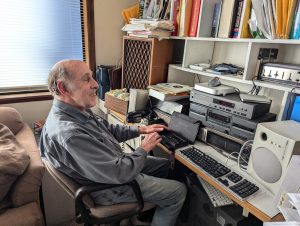Fathers, mothers, siblings, friends
Double dipping social roles in a pandemic
September 24, 2020
The smell of freshly roasted coffee, the instrumental jazz softly filling the spaces between hushed conversations of strangers all around, was an oasis, the separation of family and social interactions. But those oases have become distant memories.
When parents or siblings start pushing boundaries and testing nerves, the response used to be leave, hang out at a coffee shop or the park with some friends, and come back refreshed to handle the familial mayhem that awaits.

But when social interaction is distant, restricted, and recommended against for the safety of the community, family members are being asked to fill both social roles: family and friends.
The opposite can be said for those who are not sharing their living spaces with family members. Roommates are becoming the main supports and sole providers of physical interactions.
The Laboratory of Applied Ontology published a paper in 2004 taking a detailed look into the social roles and the unspoken rules that are universally understood about those roles. The roles that humans take up throughout their lives are complicated and have adverse effects on relationships, but throughout the human experience, there are measurable consistencies.
Two of those measurables are “an entity can play different roles simultaneously” and “a role can be played by different entities, simultaneously or at different times”
When a person has a social role, like a mother or father, in their life that is empty, void, or unfulfilling of their needs, no matter the circumstances, they search for people and things to fill those roles. That is true even when the reasons for those emotional gaps are only circumstantial.
Without an emotional voice to echo one’s deepest desires, people take to social media outlets, oversharing in the hopes that someone somewhere will be listening. Without a dependable person to bring concerns to, people search for comfort and simplicity in normalcy and schedules.
The danger of this habit are the expectations that come with them when the broken relationships are left to fester.
The effort of replacing one failing important relationship starts to look like searching for pebbles to build walls after a while. One missing father figure or one distant mother figure can never be replaced by real friendships and relationships when the wounds are still open.
Friends, mentors, teachers, and siblings can be just as supportive as a parent, and parents can learn to become friends and confidants for their children. But if there are the scars of abandonment or distrust, there is no room for a new type of relationship.

























































































